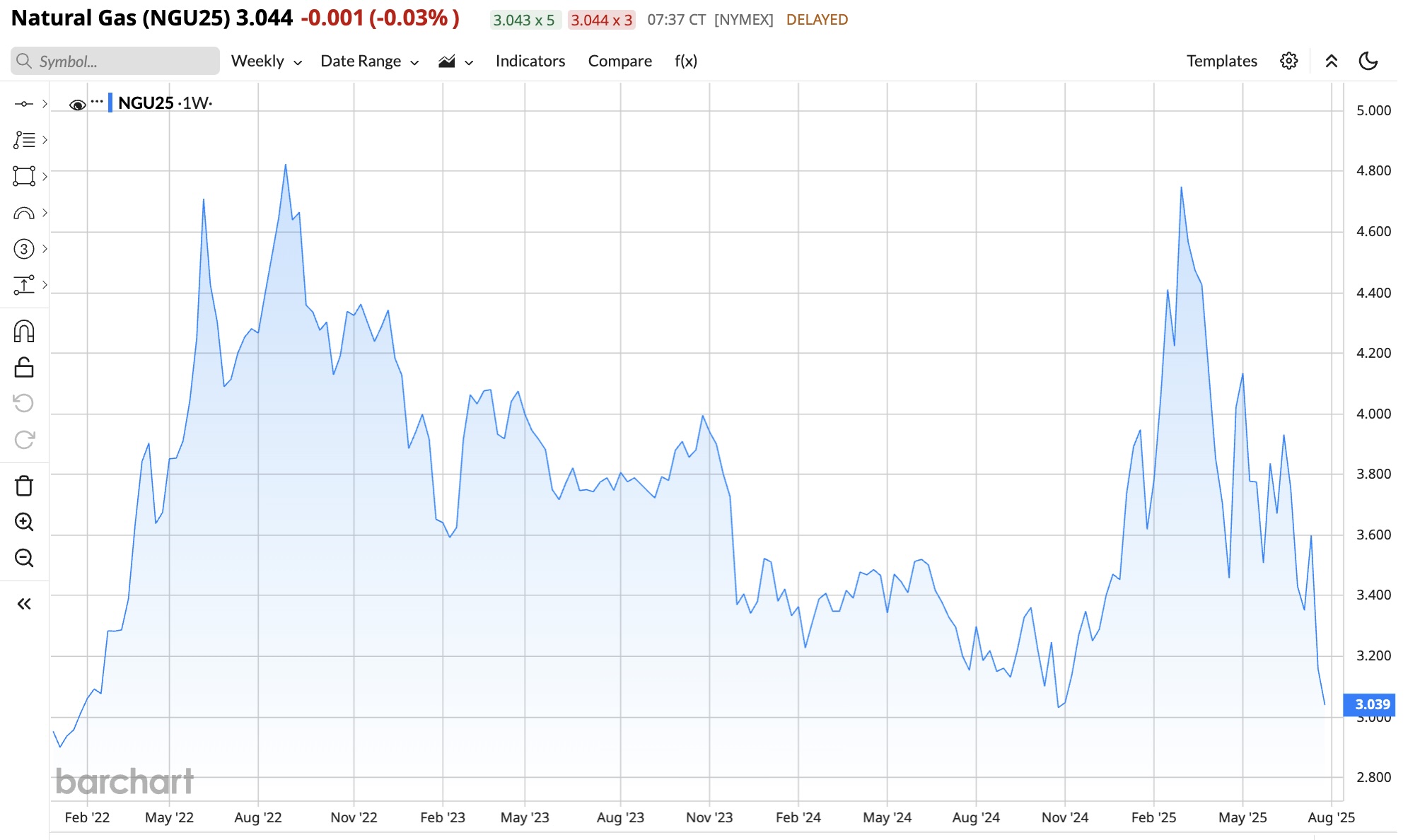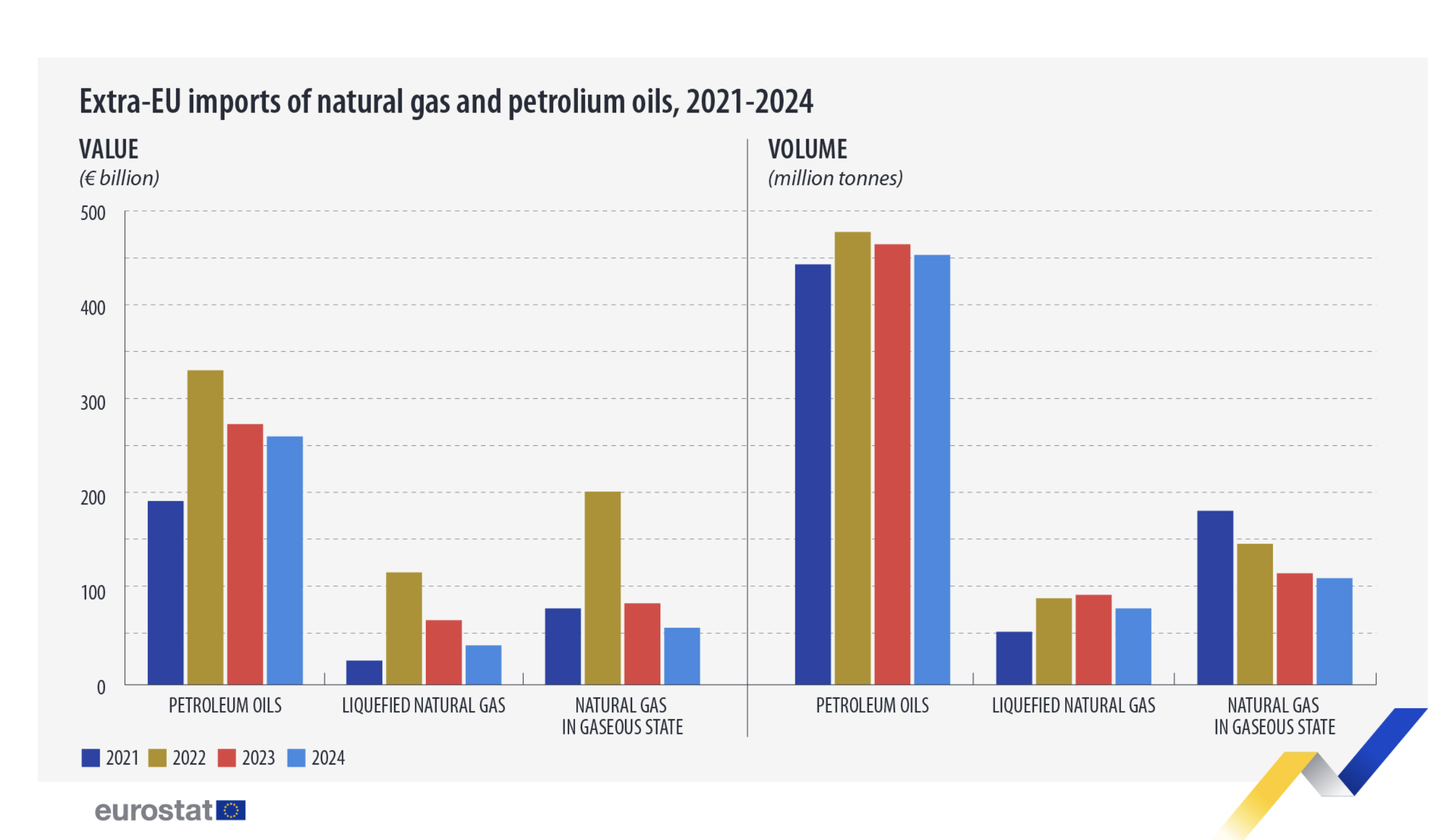US-EU Trade Deal - A Fossil Fuel Commitment Europe Doesn't Need, and May Struggle to Fulfill
How the $750 billion energy commitment could impact Europe's energy transition and what it means for energy communities.

US-EU Trade Deal - A Fossil Fuel Commitment Europe Doesn't Need, and May Struggle to Fulfill
The contrast in official messaging between the EU and US on the recent trade deal is stark: the EU offers a 'Trade Deal Explained', while the White House reports EU-US 'Reach Massive Trade Deal'. One side seems a lot more thrilled than the other, but what does this deal mean when it comes to energy?
$750 billion energy commitment from the EU to US
Within the deal is a $750 billion EU commitment over three years, tied to the current US administration's term rather than a longer term alliance, with the EU set to import 'US liquified natural gas (LNG), oil, and nuclear energy products'.
There is no set quantity or price agreed - just the commitment in dollars - $750 billion of them. Most companies or governments would find it hard to negotiate a good price on a product once they have already guaranteed the money. Given there are no terms in place, and being a dollar-based deal if energy prices fall the EU must buy more to hit its spending target - whether we need it or not.
And how has the market reacted to the news? The graph below shows that natural gas commodity prices are now at their lowest since January 2022, pre-Russia's invasion of Ukraine.
 Source: Barchart.com 2025
Source: Barchart.com 2025
That is not good news for the adoption of renewable energy and reduction of CO2, as Orklys research has shown energy consumers are predominantly motivated by cost over environmental impact. The deal essentially now risks helping fossil fuels compete with renewable energy just when renewables were beginning to compete on an equal basis.
Can the EU even make this commitment?
Today the EU spends $408 billion a year on these energy products globally, call it $1,224 billion all things being equal over the next three years. If the EU honour the deal, 61% of our fossil fuel energy in terms of spend will come from the US. Today it's 22%. Quite the leap!
It was clear member states bit their tongue to get the deal through. However, the EU doesn't centrally buy energy - there's no EU energy procurement agency as such. It is commercial traders that buy commodities, not the EU or member state governments. So while the European Commission may 'commit' to buying American fossil fuels, they don't have direct control over who actually buys what, and from where.
So how can Europe commit to these deals? If the EU is serious they will need to coerce, encourage or…I hate to even say it…financially incentivise or subsidise…companies to buy fossil fuels from the US. This would create further unfairness against renewables and can't be allowed to happen.
In fact, given the massive increase and the time allowed to achieve it, the fulfillment of the energy part of this deal is so unrealistic as things stand, perhaps this is something that will never actually happen - three years in bureaucracy is like dog years to human life - much less can be done in this timeline in the EU than in the rest of the world because multilateral processes do not lend themselves to quick action.
Does the EU need it?
In a word: No.
The EU is making a commitment to buy more of something we need less of. Think of it as the TEMU of trade deals for the EU.
EU LNG imports dropped by 15% between 2023 and 2024. That's a good trend for those of us that like breathing oxygen, but this deal could reverse these achievements.
 Source: European Commission, Eurostats (2025)
Source: European Commission, Eurostats (2025)
The US currently supplies around half of the EU's LNG. Ramping up those volumes will not only clash with our climate targets based on the Sustainable Development Goals (remember those!) but also sends a signal that Europe is still betting big on fossil fuels.
As for nuclear, current imports across the entire EU amount to just 1% of the new commitment. That won't make a dent - although replacing uranium imports from Russia might be a silver lining. Russia incidentally is also still exporting gas to the EU, albeit in smaller volumes.
So Who Loses?
Ideally: Norway. Sorry!
The EU can't afford for a net increase in volume of fossil fuels flooding the market so ideally Norway takes the hit. Norway, not an EU member state, currently supplies most of the EU's gaseous natural gas (that is gas transported via pipeline, which saves on the energy intensive process and cost of liquifying it to ship it across the Atlantic Ocean). As a non-EU member with a green reputation, they may quietly accept losing fossil business to the US without protest, but this is likely woefully optimistic rather than pragmatic.
But also: You lose too.
If the EU pushes cheaper US gas into the market, European gas prices will continue to fall below 2022 levels as is already evident. That sounds good for your heating bill, but it's terrible news for Europe's energy transition.
Lower prices make it much harder for renewables and community energy projects to compete. Solar, heat pumps, and other local systems will look more expensive by comparison - unless the EU also matches its commitment to the US with equivalent support to Europeans investing in renewable energy, and the EU citizens and small businesses trying to drive this change through their communities.
What This Means for Energy Communities
If your energy community focuses on heating, this deal could seriously affect your business case.
Falling gas prices means tougher competition. Renewables can look more expensive unless they're incredibly well planned, and ideally subsidised to level the playing field. Without support, community energy risks being priced out by an oversupplied fossil fuel market - one we didn't ask for.
Final Thought
Committing to more fossil fuels isn't just a climate risk - it's an economic one.
We're locking in high spending on energy we're supposed to be phasing out, in a procurement structure that may not even work, with consumers, and neighbours like Norway, who are supporting global SDGs, left footing the bill.
If Europe wants energy communities to thrive, it must match fossil subsidies with support for local, renewable alternatives. Otherwise, this deal risks stalling the very transition the EU has done so much to support.
If you are an energy community concerned about how this deal could impact your plans anywhere in Europe reach out to Orklys for help planning your approach. We have the tools, expertise and data to help you plan sustainably for the future.
Follow us on LinkedIn to stay on top of the latest developments.